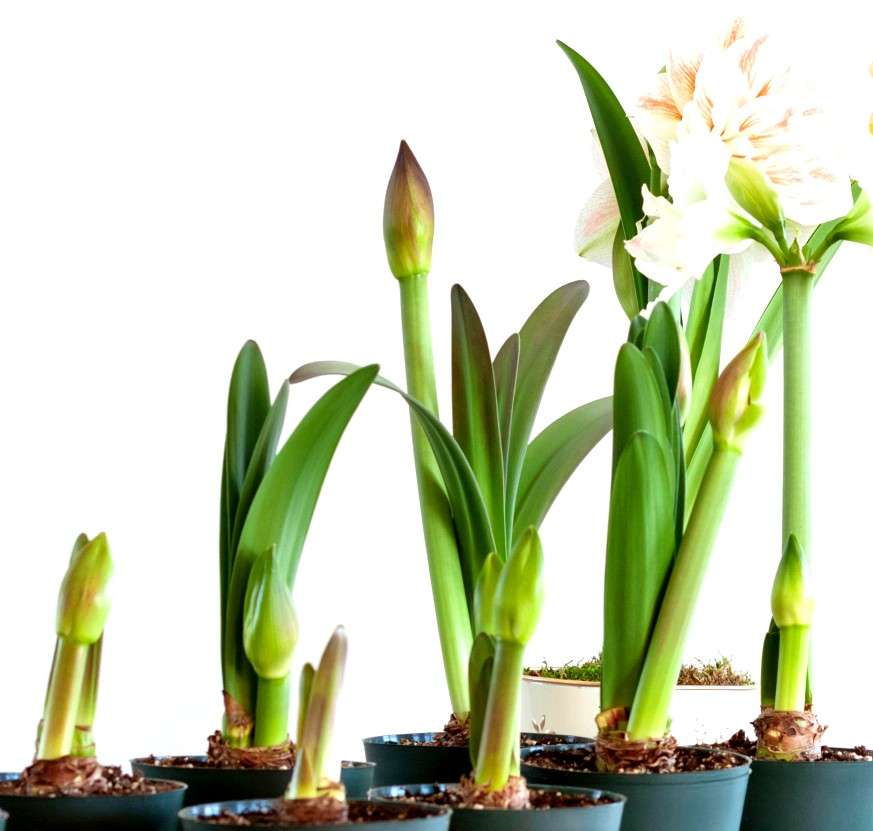What is Amaryllis?
Amaryllis is a flowering bulb plant that is grown for the beautification of the environment with its trumpet-like flowers and strap-shaped leaves, while the bulbs are decorated as gifts.
Amaryllis is not a lilly specie but is often referred to as Jersey lily, Easter lily, March lily, and belladonna lily.
It has antiparasitic, antiviral, and antitumoral properties, and is also used for healing purposes.
Is Amaryllis Safe for Pets?
If you plan growing amaryllis in your garden or indoors, one of the things to consider as a pet parent is the safety of amaryllis to your pets.
According to the American Society for the Prevention of Cruelty to Animals (ASPCA), amaryllis is poisonous to common pets such as dogs and cats.
Amaryllis is also toxic to humans when eaten, but not poisonous to touch.
Why Amaryllis are Poisonous to Dog and Cat Pets?
Yes, amaryllis plants are poisonous to both cats and dogs when eaten. The plant contains Lycorin and other alkaloid substances that can make your pets sick when ingested.
Both your dog and cat can be found in the garden hunting and digging the soil, and when they ingest a small part of the plant bulb, it can cause gastrointestinal issues and ill health.
While the bulb of the amaryllis is the most toxic part of the plant to cats and dogs, the flowers, stalk, and leaves also contain Lycorin, and are poisonous to pets as well.
Also, decorated ones such as waxed amaryllis are poisonous to cats and dogs.
What happens if any of your cats or dogs eat amaryllis?
Ingestion of this lilly-look-alike plant can cause various negative effects such as the following.
It can cause oral irritation
Chewing on amaryllis bulbs can cause oral irritation, leading to excessive salivation, drooling, or pawing at the mouth.
Both dogs and cats can have gut issues
Pets consuming amaryllis often cause stomach irritation leading to symptoms like vomiting and diarrhea.
Lethargy in pets
Both dogs and cats can become sluggish or lethargic after eating the amaryllis plant.
Loss of appetite
Your dog or cat may lose interest in eating due to the discomfort caused by the toxic compounds in the plant, and gastrointestinal issues caused.
Abdominal pain
Your pets may show signs of abdominal discomfort or pain after ingesting amaryllis.
It can cause Respiratory issues
When young dogs or cats eat amaryllis or a large portion of amaryllis bulb is consumed by your adult pet, amaryllis toxicity can affect their heart rate and breathing.
Tremors and seizures
In extreme cases, ingestion of significant amounts of amaryllis may lead to tremors or seizures in your feline and canine friends.
Conclusion
Lillies are very hazardous to pets, and amaryllis is one of the most dangerous ornamental plants for pets to consume.
If you intend to plant or already have amaryllis in your compound, you should limit your pet’s accessibility to this plant to prevent accidental poisoning.
if you now suspect your cat or dog has eaten any part of the amaryllis plant and the symptoms mentioned, call your vet attention to it immediately.
Your veterinarian doctor would be able to offer treatment and advise you on how to manage the condition so it does not get worse.
